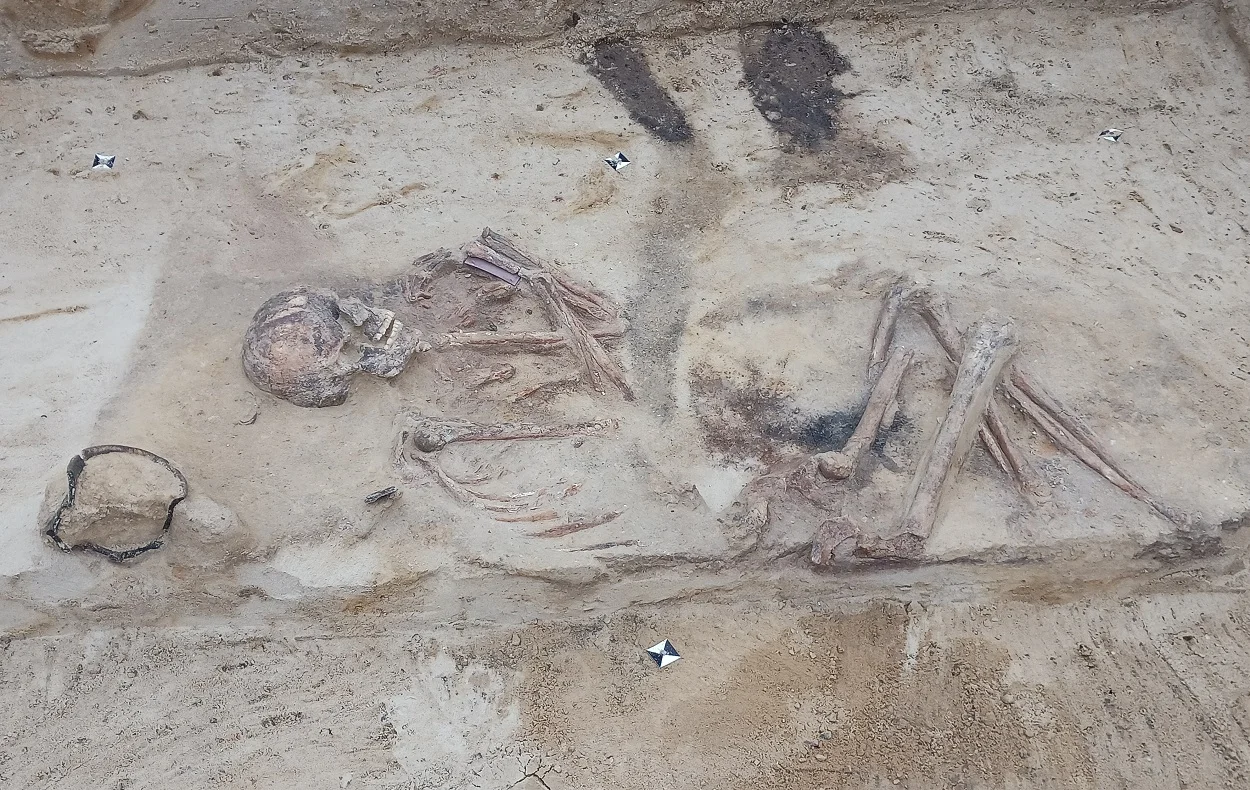Archaeologists from the State Office for Heritage Management and Archaeology (LDA) Saxony-Anhalt have uncovered 4,500-year-old warrior graves linked to the Bell Beaker Culture near Förderstedt, Saxony-Anhalt, Germany.
The Bell Beaker culture is named for the emergence of the inverted-bell beaker vessels around 2800 BC.
The Culture was widespread across Western Europe, with a strong presence in the Iberian Peninsula and extending east to the Danubian plains, north to Great Britain and Ireland, and south to the islands of Sardinia and Sicily, as well as parts of coastal northwestern Africa.
Excavations were in preparation for the construction of the SuedOstLink powerline, where Archaeologists found graves associated with the Bell Beaker culture dated to around 2500–2050 BC during the Eneolithic Period.
Archaeologists have identified at least ten graves at a depth of approximately two metres, three of which were once covered by a burial mound. Some burials contained funerary objects, such as a bell beaker, ceramic vessels, and a wrist guard made of Gotland sandstone.
According to a press statement by the LDA, the sandstone was carried to Central Germany by Ice Age glaciers and was used as wrist guards worn on the forearm to protect archers from the snap of the bowstring.
Another burial contained two flint arrowheads, with evidence of discoloration in the soil that could indicate the remains of organic material such as quivers.
“Evidence for organic objects, such as the possible quiver discovered here, are very rare. That’s what makes this find so special,” explained Susanne Friedrich, head of the archaeological monument preservation department at the LDA Saxony-Anhalt.
Header Image Credit : Sarah Krohn
Sources : idw





